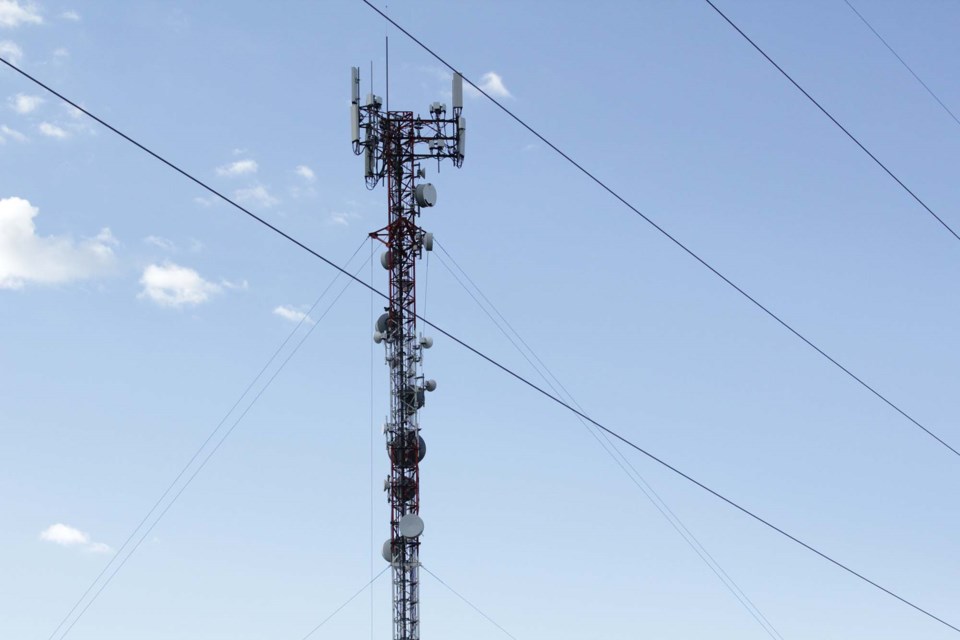Sturgeon County residents outside of the core service area for phase one of the county's installation of fibre-based broadband have begun to receive steep estimates for connecting their homes to the new Internet infrastructure.
Responding to a Facebook post by The Gazette seeking to hear from county residents, Eric Dyke commented that he received an estimate for more than $27,000.
"It blew my mind," Dyke wrote. "Obviously I will stay with [my] current provider."
Another resident, Carol Haley, commented that she received an estimate for $176,000 to connect her home to the main fibre line about five kilometres away from her home.
“Don’t think I will be getting the fibre optic service," Haley wrote.
Neither Dyke nor Haley responded to direct interview requests from The Gazette after posting on social media.
Jesse Sopko, the general manager of corporate services for Sturgeon County, said the county expects the cost will be out of reach for many residents.
“We know and acknowledge that for people in the extended service area that live a long distance away from the route that it is a significant cost," Sopko said. "When we issue estimates to people, we don’t have an expectation that people will necessarily be able to make that investment.”
The estimates are dependent on a number of factors, such as the distance from a resident's home to the main fibre line, railroad crossings, and underground utilities, Sopko said.
"If it’s cost prohibitive for people to connect to the fibre, our staff can give advice on different solutions and we want to speak with people," Sopko said, adding that the county wants to hear from residents, "so we can offer other solutions or hear more from people what the challenges are so we can continue to advocate.”
Only county residents and businesses outside of the areas covered in the first phase of broadband installation are receiving estimates. Homes and businesses included in the core service area for phase one, who have signed and submitted their access agreements, will be connected to the fibre line at the expense of the county. Phase one includes Villeneuve, Calahoo, Riviere Qui Barre, Heritage Industrial Park, and Pro North Industrial Park.
Phase one covers about 1,000 premises, Sopko said.
“We have heard from people in the extended service area that there’s questions of equity," Sopko said. "Those are things that council is certainly aware of, and they want to improve on in future phases.
"We’re working with council over the coming weeks to reflect on the first phase and then council hasn’t made any commitments on future phases but certainly it’s important for us to provide service to all areas of the county.”
County is up to speed: Ottawa
In November 2020, a month before Sturgeon County began developing its own broadband strategy, the federal government announced the Universal Broadband Fund (UBF), a program designed to improve rural Internet speed across the country.
As part of the UBF announcement, the federal government established that an Internet speed of 50/10 megabits per second was the minimum speed all Canadians should have access to. Communities and areas that do not have access to that level of Internet speed would qualify for federal cash to help fund projects such as the county's fibre-based broadband strategy, the announcement states.
However, to determine the Internet speed available in each community, and therefore a community's eligibility for funding, the federal government uses the speed Internet service providers claim to provide in an area, not the speed seen by customers through tests.
"When we did our surveys with residents and business owners in 2020, we asked them to do speed tests through the Canadian Internet Registration Authority (CIRA), which is an open-source speed-test website," Sopko said. "What we see from that data is that most of the county is not experiencing the 50 megabits-per-second download, 10 megabits-per-second upload, that the federal government says is the minimum service level.
"When we look at [the Internet providers'] data and we put it next to the accurate open-source data that we’re able, and everyone in the world is able, to look at, we know there’s some inconsistencies and they’re not in the favour of the municipalities," Sopko said.
In March of this year, the provincial and federal government announced a joint funding commitment of $780 million to help close the "digital divide" of Internet speeds in rural Alberta, which Sturgeon County is still ineligible for. Half of the $780-million commitment is from the UBF.
The announcement stated that the estimated cost to improve Internet speed in the province is $1 billion, which encapsulates 200,000 households.
The county and members of council have been advocating to and asking the provincial and federal governments to modify the eligibility criteria and expand eligibility for the UBF, but haven't been successful, Sopko said.
"We’ve heard until this point that that’s not something that’s being considered," Sopko said. "That’s the challenge that we’re facing.”
Without additional funding from higher levels of government the county has had to fund the broadband strategy partially through taking on debt, and by partnering with the private sector.
“We continue to advocate and continue to be open to partnership as well," Sopko said. "That’s the challenge, there’s not funding available in Sturgeon County, but council hears from residents and business owners that the need is now.
"We can’t just keep waiting because the need is just compounding."




